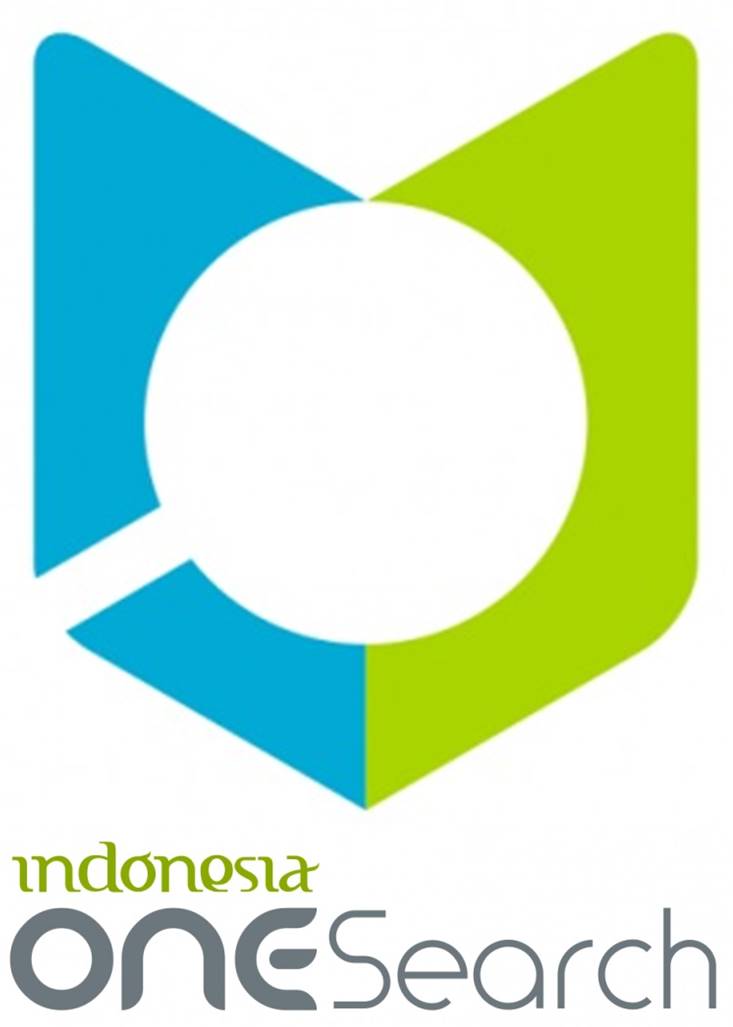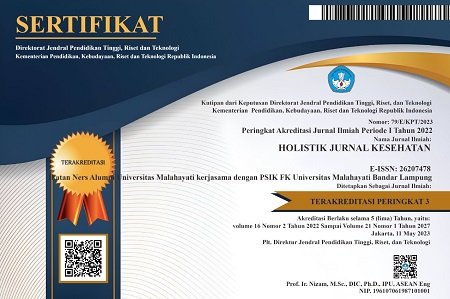Implementasi metode pembelajaran campuran berbasis sistem manajemen pembelajaran pada pelatihan keperawatan: A literature review
Abstract
Background: Technical competency nursing training is the basis for efforts to develop nurse competency, the implementation of which can be modified using the blended learning method or mixed system. The blended learning system combines face-to-face and online learning both virtual synchronously and virtual asynchronously. In accommodating virtual asynchronous learning, one of the learning technologies that can be used is a Moodle-based Learning Management System (LMS).
Purpose: To provide views and descriptions of the use of the Learning Management System in nursing training using the blended learning method, analyzing the effectiveness of use, inhibiting and supporting factors, accuracy of target use, and outcomes resulting from LMS-based learning.
Method: This research uses a literature review design, namely collecting and analyzing previous literature or research references that have been selected from various sources to become a conclusion on new ideas or a compilation of new ideas. The literature study selection process is based on Preferred Reporting Items for Systematic Reviews (PRISMA-ScR). The literature used in this study is various articles discussing topics with three categories of keywords, namely learning management system (LMS); blended learning; and nursing training. Search for articles via online databases, including Scopus, ProQuest Clinical Key, Ebscohost, and Pubmed. Based on these keywords, they were input using "and" and "or" which were then filtered to produce specific literature findings by narrowing the year range, namely 2018-2023.
Results: Based on a review of 10 articles, the use of LMS produces positive effects in blended learning for teachers, students or participants with good preparation and media. International literature shows that the use of Learning Management Systems (LMS) as a mode of asynchronous learning can accommodate and provide a positive impact in the development of blended learning. In its implementation, blended learning with LMS also influences the success of learning in this electronic evaluation model investigation, namely that it depends on the learning strategies used by the students themselves, the environment where the learning takes place, the teaching design brought by the teacher into the classroom, and student learning behavior.
Conclusion: A Moodle-based Learning Management System is an alternative form of developing competency improvement in effective and efficient nursing practice. Support for interactive and creative learning media modifications can increase interest in learning.
Keywords: Blended Learning; Learning Management System (LMS); Nursing Training
Pendahuluan: Pelatihan keperawatan teknis kompetensi menjadi dasar upaya pengembangan kompetensi perawat yang mana dalam pelaksanaannya dapat dimodifikasi dengan metode blended learning atau sistem bauran. Sistem pembelajaran blended learning menggabungkan pembelajaran tatap muka dan online baik secara sinkronus maya maupun asinkronus maya. Dalam mengakomodir pembelajaran asinkronus maya salah satu teknologi pembelajaran yang dapat digunakan adalah Learning Management System (LMS) berbasis moodle.
Tujuan: Untuk memberikan pandangan dan gambaran terhadap pemanfaatan Learning Management System pada pelatihan keperawatan dengan metode blended learning, menganalisa efektifitas pemanfaatan, faktor-faktor yang menghambat dan mendukung, ketepatan sasaran penggunaan, serta luaran yang dihasilkan dari pembelajaran berbasis LMS.
Metode: Penelitian ini menggunakan rancangan literature review yaitu melakukan pengumpulan dan menganalisis literatur-literatur atau referensi penelitian terdahulu yang telah dipilih dari berbagai sumber hingga menjadi sebuah kesimpulan gagasan baru atau satu kompilasi ide baru. Proses pemilihan studi literatur berdasarkan oleh Preferred Reporting Items for Systematic Reviews (PRISMA-ScR). Literatur yang digunakan dalam studi ini adalah berbagai artikel yang membahas topik dengan tiga kategori kata kunci yakni learning management system (LMS); blended learning; dan nursing training. Penelusuran artikel melalui online database antara lain, Scopus, ProQuest Clinical Key, Ebscohost, dan Pubmed. Berdasarkan kata kunci tersebut diinput dengan menggunakan “and” dan “or” yang kemudian dilakukan penapisan untuk menghasilkan temuan literatur yang spesifik dengan mempersempit penetapan rentang tahun yaitu tahun 2018-2023.
Hasil: Berdasarkan telaah 10 artikel, pemanfaatan LMS menghasilkan efek yang positif dalam pembelajaran bauran (blended learning) baik bagi pengajar, siswa atau peserta dengan persiapan dan media yang baik. Literatur internasional menunjukkan bahwa pemanfaatan Learning Management System (LMS) sebagai salah satu moda pembelajaran asinkron dapat mengakomodir dan memberikan dampak yang positif dalam pengembangan pembelajaran blended learning. Dalam Pelaksanaannya juga pembelajaran blended learning dengan LMS yang mempengaruhi keberhasilan pembelajaran dalam penyelidikan model evaluasi elektronik ini yaitu bergantung kepada strategi pembelajaran yang digunakan oleh siswa itu sendiri, lingkungan tempat pembelajaran berlangsung, desain pengajaran yang dibawa oleh guru ke dalam kelas, dan perilaku belajar siswa.
Simpulan: Learning Management System berbasis moodle menjadi salah satu alternatif bentuk pengembangan peningkatan kompetensi dalam praktik keperawatan yang efektif dan efisien. Dukungan modifikasi media pembelajaran yang interaktif dan kreatif dapat meningkatkan minat pembelajaran.
Kata Kunci: Blended Learning; Learning Management System (LMS); Pelatihan Keperawatan.
Keywords
References
Alghamdi, S. R., & Bayaga, A. (2016). Use and attitude towards learning management systems (LMS) in Saudi Arabian universities. Eurasia Journal of Mathematics, Science and Technology Education, 12(9), 2309-2330.
Brereton, S., Curtin, M., Greene, E., Hardie, P., Szafranska, M., & Kirwan, C. (2022). A blended learning perineal suturing programme for midwifery students: An evaluative descriptive study. Nurse Education in Practice, 64, 103453.
Buthelezi, L. I., & Van Wyk, J. M. (2020). The use of an online learning management system by postgraduate nursing students at a selected higher educational institution in KwaZulu-Natal, South Africa. African Journal of Health Professions Education, 12(4), 211-214.
Cavus, N. (2015). Distance learning and learning management systems. Procedia-Social and Behavioral Sciences, 191, 872-877.
Falaki, M., Ahmadinejad, M., Razban, F., Najafipour, M. A., & Asadi, N. (2022). The effect of learning management system on ICU nurses' sustained learning about safe blood transfusion: A quasi‐experimental study. Health Science Reports, 5(4), e629.
Fernadi, M. F. (2022). Peran Maksimal Perpustakaan Sebagai Media Pendidikan Bagi Siswa. Journal of Islamic Education and Learning, 2(1), 95-104.
Furnes, M., Kvaal, K. S., & Høye, S. (2018). Communication in mental health nursing-Bachelor Students' appraisal of a blended learning training programme-an exploratory study. BMC nursing, 17(1), 1-10.
Gunawan, G., Purwoko, A. A., Ramdani, A., & Yustiqvar, M. (2021). Pembelajaran menggunakan learning management systemberbasis moodle pada masa pandemi covid-19. Indonesian Journal of Teacher Education, 2(1), 226-235.
Hariyadi, H., Misnawati, M., & Yusrizal, Y. (2023). Mewujudkan Kemandirian Belajar: Merdeka Belajar Sebagai Kunci Sukses Mahasiswa Jarak Jauh. BADAN PENERBIT STIEPARI PRESS, 1-215.
Kho, M. H. T., Chew, K. S., Azhar, M. N., Hamzah, M. L., Chuah, K. M., Bustam, A., & Chan, H. C. (2018). Implementing blended learning in emergency airway management training: a randomized controlled trial. BMC emergency medicine, 18(1), 1-10.
Koca, B., & Arkan, G. (2020). The effect of the disaster management training program among nursing students. Public health nursing, 37(5), 769-777.
Moon, H., & Hyun, H. S. (2019). Nursing students’ knowledge, attitude, self-efficacy in blended learning of cardiopulmonary resuscitation: a randomized controlled trial. BMC medical education, 19(1), 1-8.
Mtshali, N. G., Harerimana, A., Mdunge, V. N., & Mthembu, S. Z. (2022). Postgraduate students’ experiences with learning management systems at a selected nursing education institution in KwaZulu-Natal Province. African Journal of Health Professions Education, 14(2), 89-97.
Muhammad, R., & Ardimansyah, M. I. (2021). Memanfaatkan Learning Management System berbasis Moodle untuk pembelajaran daring di sekolah. uwais inspirasi indonesia.
Mustakim, M., Shoffa, S., & Hidayatullah, A. (2019). Pengembangan perangkat pembelajaran blended learning berbasis schoology untuk meningkatkan literasi digital matematika. Jumlahku: Jurnal Matematika Ilmiah STKIP Muhammadiyah Kuningan, 5(1), 88-99.
Rouleau, G., Gagnon, M. P., Côté, J., Payne-Gagnon, J., Hudson, E., Dubois, C. A., & Bouix-Picasso, J. (2019). Effects of e-learning in a continuing education context on nursing care: systematic review of systematic qualitative, quantitative, and mixed-studies reviews. Journal of medical Internet research, 21(10), e15118.
Sáiz-Manzanares, M. C., Escolar-Llamazares, M. C., & Arnaiz González, Á. (2020). Effectiveness of blended learning in nursing education. International journal of environmental research and public health, 17(5), 1589.
Sukanto, D. (2020). Pembelajaran Jarak Jauh Dengan Media E-Learning Sebagai Solusi Pembelajaran Pada Masa Pandemi Corona Virus Disease 2019 (Covid-19). Syntax, 2(11), 835.
Wulandari, R., Shofiyah, N., & Kurniawan, M. I. (2022). Conceptualization of Multicultural-Based Blended Learning with Flipped Classroom Model: Implications for Collaborative Problem Solving. Procedia of Social Sciences and Humanities, 3, 1316-1326.
Zhong, J., Li, Z., Hu, X., Wang, L., & Chen, Y. (2022). Effectiveness comparison between blended learning of histology practical in flipped physical classrooms and flipped virtual classrooms for MBBS students. BMC Medical Education, 22(1), 1-8.
DOI: https://doi.org/10.33024/hjk.v17i9.13035
Refbacks
- There are currently no refbacks.
Copyright (c) 2024 Holistik Jurnal Kesehatan

This work is licensed under a Creative Commons Attribution-NonCommercial 4.0 International License.














